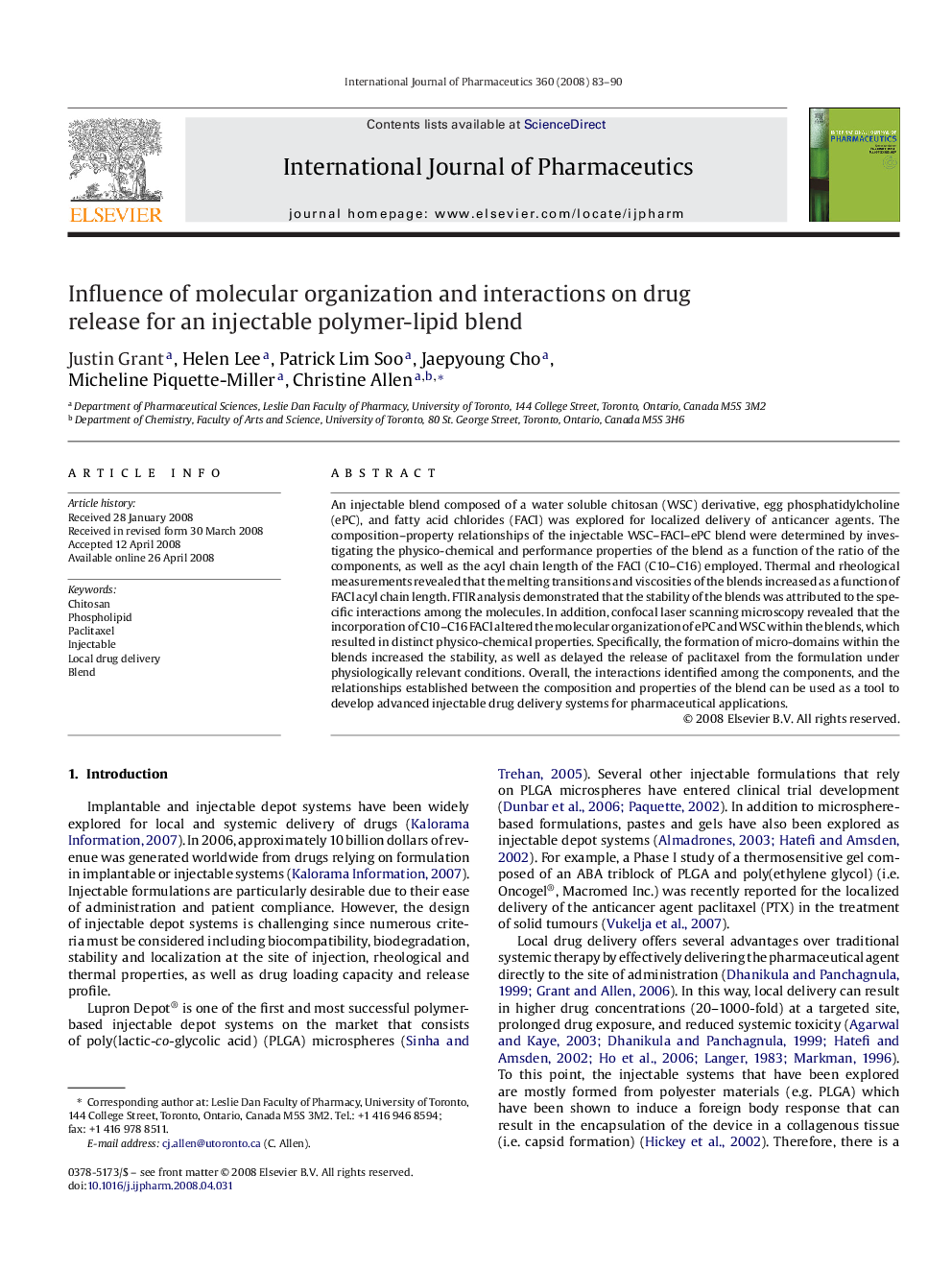| Article ID | Journal | Published Year | Pages | File Type |
|---|---|---|---|---|
| 2505097 | International Journal of Pharmaceutics | 2008 | 8 Pages |
An injectable blend composed of a water soluble chitosan (WSC) derivative, egg phosphatidylcholine (ePC), and fatty acid chlorides (FACl) was explored for localized delivery of anticancer agents. The composition–property relationships of the injectable WSC–FACl–ePC blend were determined by investigating the physico-chemical and performance properties of the blend as a function of the ratio of the components, as well as the acyl chain length of the FACl (C10–C16) employed. Thermal and rheological measurements revealed that the melting transitions and viscosities of the blends increased as a function of FACl acyl chain length. FTIR analysis demonstrated that the stability of the blends was attributed to the specific interactions among the molecules. In addition, confocal laser scanning microscopy revealed that the incorporation of C10–C16 FACl altered the molecular organization of ePC and WSC within the blends, which resulted in distinct physico-chemical properties. Specifically, the formation of micro-domains within the blends increased the stability, as well as delayed the release of paclitaxel from the formulation under physiologically relevant conditions. Overall, the interactions identified among the components, and the relationships established between the composition and properties of the blend can be used as a tool to develop advanced injectable drug delivery systems for pharmaceutical applications.
